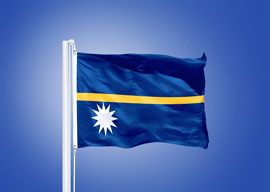
May 07, 2016

Source: Bigstock
The first thing I noticed about the headline of a recent story on the Guardian website was its grammar:
Nauru, Second refugee at Australian detention centre sets themselves alight.
This is English at its most hideous: No one with a minimal regard for the language could have written it, perhaps not even have thought it.
But I suppose that to object to bad grammar in the context of such a story is a sign of pedantry carried to the point of insensitivity. What, after all, is an ugly locution set against a woman setting fire to herself (themselves was a herself)?
Nauru is an island in the Central Pacific about twelve miles in circumference that now derives its income from being the site of a detention camp for illegal immigrants to Australia who claim refugee status. It was not always thus: When I visited it a third of a century ago it was among the richest countries in the world.
Nowadays, so I was told recently, a visitor’s visa to the island costs 6,000 Australian dollars. This is because the government does not want anyone to inquire or observe too closely what is going on there. Groucho Marx didn”t want to be the member of any club that would accept him as a member, and the Nauruan government doesn”t want anyone to visit it who wants to visit it.
For so tiny a place, unknown to most of humanity, Nauru has a significance far beyond anything you might expect. In certain respects it was in advance of the whole world.
When I visited it all those years ago it had become immensely rich because of the phosphate rock that covered its surface; the royalties on the rock went to the Nauruan landowners. The rock was in the process of being mined out, leaving the island a virtual moonscape. Not more than twenty years before, the inhabitants had lived by subsistence on fish and coconuts, but now they had one of the highest per-capita incomes in the world.
This sudden accession to wealth was not altogether a good thing for the local population (4,000 when I visited, 10,000 now). There was little for them to do, either in the way of work or entertainment. Practically everything”rent, telephone, electricity, water”was supplied to everyone free of charge. One of the major occupations of the population was eating, which it did on a vast scale. Many Nauruans became enormously fat, and in 1975, Professor Paul Zimmet, an Australian researcher, showed that at least a third of them were suffering, as a result, from type 2 diabetes. I met the professor in the early “80s and thought that his research was a mere curiosity, interesting but of no obvious importance, but in fact it was visionary. The Nauruans were no doubt genetically susceptible to developing type 2 diabetes, but in essence what happened to them has happened subsequently to a large proportion of the world’s population.
The diet that the Nauruans favored was not refined from the gastronomic point of view. They ate huge mounds of rice and drank vast quantities of Fanta. For those who preferred something stronger, there was Château d”Yquem in the island’s one supermarket. If I had been as visionary as Paul Zimmet, I would have bought it all, kept it till today, and been a rich man. At the time, Nauru must have had the highest per-capita consumption of Château d”Yquem in the world.
The president at the time, Hammer DeRoburt, who had been deported to the island of Truk during the Japanese occupation of Nauru in the war, had decided that the country needed an airline: Air Nauru. It was run at a loss, partly as a service to less well-endowed Pacific Island nations. I once flew on an Air Nauru Boeing 737 jet from Nauru to Singapore (about 4,500 miles) as the only passenger aboard. Flying on their jets was one of the Nauruans” pastimes, the island having few diversions to keep them entertained.